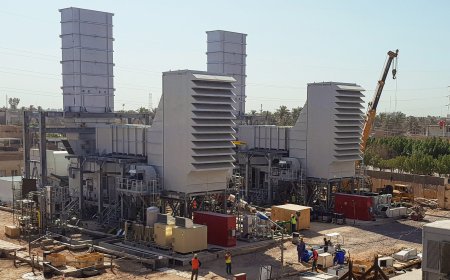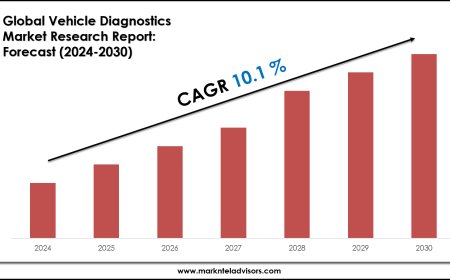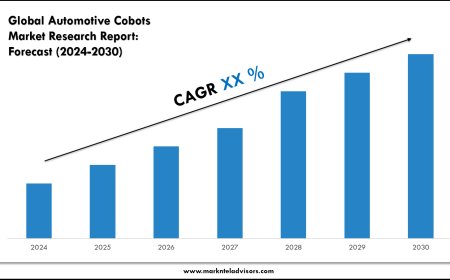Range Rover Engine Replacement: Process, Cost, and Best Practices
Explore the full guide to Range Rover engine replacement—process, costs, expert tips, and best practices for a reliable, high-performance upgrade.

Range Rovers are symbols of luxury, power, and prestige. Their robust engines are designed to offer peak performance both on and off-road. However, like any machine, even a high-end vehicle like a Range Rover can face mechanical issues, especially after years of use or lack of maintenance. When engine problems arise and repairs are no longer feasible or cost-effective, engine replacement becomes the best option.
This guide will walk you through the complete process of a Range Rover engine replacement, provide detailed insights into associated costs, and offer best practices to ensure your vehicle runs smoothly post-replacement.
1. Why You Might Need an Engine Replacement
Engine replacement isnt always the first solution, but several scenarios may make it unavoidable:
a. Engine Seizure
A seized engine, often due to lack of oil or overheating, means internal parts have stopped moving entirely. Repairing this is usually impossible or extremely costly.
b. Excessive Smoke or Oil Consumption
If your Range Rover is emitting thick smoke or guzzling oil excessively, it could indicate worn-out piston rings or a cracked engine block.
c. Knocking or Tapping Sounds
Internal engine damage often presents as knocking noises. If left untreated, it may lead to catastrophic failure.
d. Repeated Overheating
A cracked head gasket or warped cylinder head due to overheating is often the death knell for an engine.
e. High Mileage Wear
Engines degrade over time. If your Range Rover has exceeded 150,000 to 200,000 miles with heavy use, the engine may be beyond repair.
2. Understanding the Engine Replacement Process
Replacing a Range Rover engine involves a structured, multi-step process carried out by professionals. Here's what to expect:
a. Diagnosis and Assessment
Before replacing the engine, a full diagnostic check is done to confirm the failure and rule out other less expensive repair options. Mechanics may use OBD-II tools, compression tests, and oil analysis.
b. Choosing the Replacement Engine
You have several options:
-
New Engine (OEM): Direct from Land Rover; most expensive but comes with a full warranty.
-
Rebuilt Engine: Old engine dismantled, cleaned, and rebuilt with new parts.
-
Remanufactured Engine: Rebuilt in a factory setting to OEM specs.
-
Used Engine: Sourced from salvage vehicles; cheaper but riskier.
c. Removing the Old Engine
The vehicle is lifted, and the old engine is disconnected from:
-
Transmission
-
Radiator and coolant system
-
Exhaust system
-
Wiring harness
-
Mounts and cross members
d. Installing the New Engine
Once the old engine is removed:
-
New engine is aligned and mounted
-
All connections are re-established
-
New fluids (oil, coolant, transmission fluid) are added
-
Sensors and electricals are recalibrated
e. Testing and Quality Assurance
The new engine is started and monitored. The garage will typically run diagnostic tests to check for error codes, leaks, or unusual noises. A test drive is often part of this phase.
3. Range Rover Engine Replacement Costs (UK & US Comparison)
Costs vary widely depending on model, engine type, and location.
| Type of Engine | UK Cost Estimate () | US Cost Estimate ($) |
|---|---|---|
| OEM New Engine | 8,000 12,000 | $10,000 $15,000 |
| Rebuilt Engine | 4,500 6,500 | $6,000 $9,000 |
| Remanufactured Engine | 5,500 8,000 | $7,000 $11,000 |
| Used Engine (Salvage) | 2,500 4,000 | $3,500 $6,000 |
| Labor Charges | 1,200 2,000 | $1,500 $2,500 |
4. How to Choose the Right Engine Replacement Option
a. Match Engine Codes
Ensure the replacement engine matches your Range Rovers VIN and engine code to avoid compatibility issues.
b. Warranty Considerations
-
OEM engines often come with a 3-year/100,000-mile warranty.
-
Rebuilt/remanufactured engines may come with 1224 months of coverage.
-
Used engines typically offer 3090 days or come with no warranty at all.
c. Reputable Engine Suppliers
Always buy from certified suppliers or directly through your Land Rover dealership.
d. Ask for Full History
If you opt for a used engine, ask for the previous mileage, accident history, and service logs.
5. Best Practices for a Successful Engine Replacement
a. Use Certified Technicians
Land Rover engines are complex. Ensure your mechanic is certified and experienced in European or luxury vehicles.
b. Replace Supporting Components
Its wise to replace old or worn components during engine replacement:
-
Timing belts/chains
-
Water pumps
-
Thermostat
-
Spark plugs
-
Engine mounts
This ensures long-term performance and avoids repeat labor costs.
c. Reprogram the ECU
Modern Range Rovers have complex ECUs. Reprogramming may be needed for the new engine to communicate correctly with onboard systems.
d. Adhere to Break-In Period
After a new or rebuilt engine is installed:
-
Avoid high RPMs for the first 1,000 miles
-
Change the oil after the break-in period
-
Monitor engine temp and oil levels regularly
6. Common Mistakes to Avoid
a. Skipping Diagnostics
Never assume you need a new engine. Always confirm with a second opinion and thorough testing.
b. Buying from Unverified Sellers
Cheap used engines from eBay or unverified sources may end up costing more in the long run.
c. Ignoring Compatibility
Even engines from the same year or model can have variations. Always verify the exact match.
d. Overlooking Transmission Compatibility
If you're upgrading or replacing the engine, ensure it's compatible with your current transmission system.
7. Benefits of Engine Replacement
While it may seem like a costly endeavor, replacing your Range Rover engine has multiple long-term benefits:
-
Increased Lifespan: Adds years of life to your vehicle
-
Better Performance: Improved fuel efficiency and smoother operation
-
Cost-Efficiency: Often cheaper than buying a new Range Rover
-
Environmental Impact: Replacing engines is a more sustainable option than scrapping an entire vehicle
8. When Is It Better to Sell Instead of Replace?
If your Range Rover is over 10 years old and worth less than the cost of an engine replacement, it might be more practical to sell it for parts or trade in for a new vehicle.
Ask yourself:
-
What is the resale value post-replacement?
-
Are there other issues (rust, transmission, electronics)?
-
Do you plan to keep the vehicle for several more years?
If the math doesnt work, consider alternative options like vehicle trade-ins or engine repair rather than full replacement.
Conclusion
Replacing a Range Rover engine is a major but sometimes necessary investment. With the right preparation, trusted technicians, and proper engine selection, it can breathe new life into your luxury vehicle and restore it to peak performance. Whether you opt for a brand-new engine or a professionally rebuilt one, the process demands care, knowledge, and attention to detail.
If you're unsure whether a replacement is worth it, consult a specialist or get a second opinion. Done right, an engine replacement not only saves you from buying a new car but also ensures your Range Rover continues to offer the luxury and performance its known for.
































